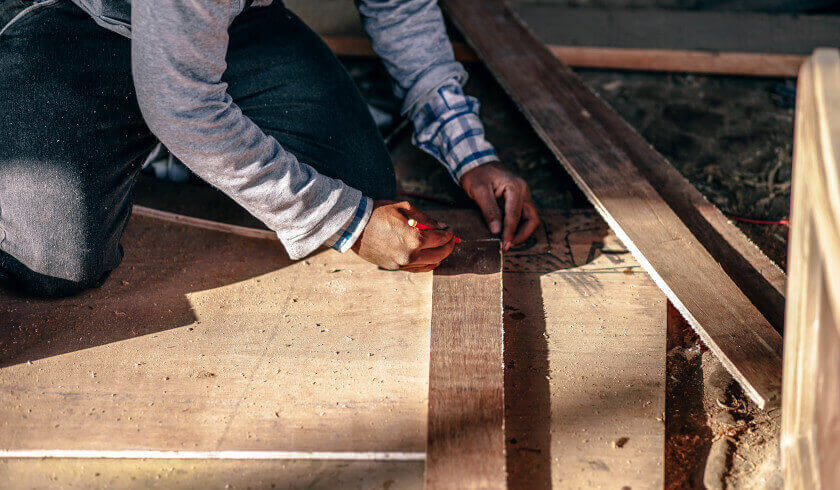How to avoid overcapitalising on your renovation

According to Right Property Group’s Victor Kumar, many investors are often attracted to the thrill of the process after seeing it on TV or hearing about it from their colleagues, but he strongly advises against “renovation for the sake of renovating”.
He said: “You need to … make sure that you're renovating when it's absolutely necessary … within your portfolio to increase the cash flow, increase the value, or whether it is necessary because of the type of property you've bought and the demand from the market.”
Buy under market value
While there are different points in your journey when you can do renovations, a lot of property investors often decide to renovate their investment property at the time of purchase—meaning, they actually seek assets that are not in the perfect condition so they can take advantage of their renovation potential.
As a first step to implementing this strategy, you have to make it a point to secure a property under market value. Buying under market value does not only mean saving money. It also pertains to having the ability to tap the property’s unrealised potential.
“You're moving it to a different category to realise its potential … by spending as little as possible,” Smart Property Investment’s Phil Tarrant said.
Just so you know that you’re getting your money’s worth, go and check the property for yourself in order to determine the wealth-creation opportunities it can provide. Some real estate assets are advertised as “renovator’s delight” but offer only limited potential.
Victor said: “Generally … those properties may go for a premium in comparison to something that actually doesn't need renovation because people tend to think that just because they've bought a property that has got renovation potential ... they are going to make money.”
If you plan to renovate the property as soon as you purchase it, you have to make sure that it will be adding value to your asset or improving your portfolio’s cash flow straight away. Otherwise, you’re better off buying a property that is in good condition.
Target slower markets
Through thorough research and careful planning, there will almost always be good money to be made when you renovate an investment property, especially considering how property markets move in cycles. For his personal portfolio, Victor sought properties for renovation in slower markets.
He explained: “In a fast-moving market, I try and postpone my renovations … I let the market do what it needs to do first before I … come in with a catalyst, which is the renovation, to further kick up [the property’s] value.”
“Sometimes ... by doing it that way, you may be able to scale back your renovations. At the end of the day, the major cost factors in any renovation [are] really the kitchen and the bathroom … and then you've got the logistics about paint, carpet, and all this ... stuff—we need to look at it from that viewpoint,” he added.
Is there a ‘right formula’?
As in all investment strategies, there is no one formula to guarantee success in property renovation. Regardless of the plan that you come up with, at the end of the day, you just have to work out a reasonable plan—make sure that once you spend the money, you can recoup it by added equity or added cash flow on the property.
Victor personally don’t subscribe to a formula because, after all, each market—from suburbs to property—move in different ways.
He said: “As an example … you could get a property that might cost you a lot more to paint because it's got lead paint on it at the moment, [which could be] more expensive to take off and prepare before you [can] start painting.”
“Then, [you also factor in] … where the market is ... in terms of how busy are the traits in that area … [In] Logan … if you compare prices of works right now to about three years ago, there's at least about a 50 per cent increase.
“If you've done a renovation set three years ago and you're operating off the same figures and you're doing your sums based on the same figures, you're in for a surprise,” the property professional explained.
At the end of the day, your goal is to maximise the benefit of the renovation by making it appealing to the majority of the population—all without overcapitalising.
Tune in to Victor Kumar’s episode on The Smart Property Investment Show to know more about the different stages of renovation and how it can impact your portfolio in the long run.

